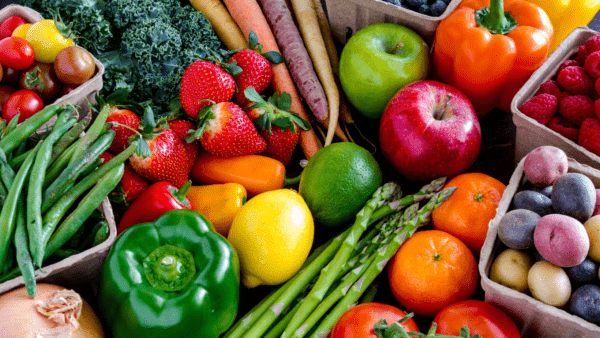Staying hydrated during pregnancy is essential for both the health of the mother and the growing baby. In this article we highlight ways to stay hydrated, ways to avoid dehydration and some of the possible side effects if the mother becomes dehydrated.
Here are some tips to help you stay hydrated during pregnancy
- Drink plenty of water: Drinking water is one of the easiest and most effective ways to stay hydrated during pregnancy. You should aim to drink at least 8-10 glasses of water every day. One easy way to do this, have a glass when you first wake up, one before every meal or snack and keep another next to your bed for when you wake up thirsty at night.
- Add flavor to your water: If you don’t like the taste of plain water, you can try adding lemon, lime, or cucumber slices to your water to give it some flavor. Regular sparkling water can also be a nice treat – you can flavor it with the same lemon, lime or cucumber as you would for regular water. Try to avoid sparkling waters with added artificial sweeteners or natural flavorings.
- Drink other fluids: In addition to water, you can also drink other fluids such as milk, fruit juice, coconut water, herbal tea, and vegetable juice. Just make sure to avoid drinks that are high in sugar or caffeine, example coffee and energy drinks.
- Eat Foods High in Water: Eating foods that are high in water content can also help you stay hydrated. Some of them include:
- Watermelon: Watermelon is about 92% water, making it an excellent choice for staying hydrated.
- Cucumber: Cucumbers are about 96% water, making them a great choice for a refreshing and hydrating snack.
- Tomatoes: Tomatoes are about 94% water, making them a great addition to salads and sandwiches.
- Strawberries: Strawberries are about 91% water and are a delicious and hydrating snack.
- Grapefruit: Grapefruit is about 91% water and can be a refreshing addition to your morning routine.
- Cantaloupe: Cantaloupe is about 90% water and is a sweet and hydrating snack.
- Lettuce: Lettuce is about 96% water, making it a great addition to sandwiches and salads.
- Spinach: Spinach is about 91% water and is a nutrient-dense vegetable that can help keep you hydrated.
- Broccoli: Broccoli is about 90% water and is a great source of vitamins and minerals.
- Bell peppers: Bell peppers are about 92% water and can be a crunchy and hydrating addition to salads and stir-fries.
- Avoid alcohol and limit caffeine: Alcohol and caffeine can dehydrate your body, so it’s best to avoid alcohol completely during pregnancy and limit your caffeine intake to no more than 200 milligrams per day.
- Listen to your body: Pay attention to your body’s signals and drink fluids whenever you feel thirsty. You may need to drink more water than usual if you are sweating or if the weather is hot.

Several factors can lead to dehydration during pregnancy
- Not drinking enough water: The most obvious reason for dehydration is not drinking enough fluids, especially water. Pregnant women should aim to drink at least 8-10 glasses of water every day.
- Excessive sweating: Pregnant women may sweat more, especially during hot weather or physical activity, which can lead to dehydration.
- Vomiting and diarrhea: Morning sickness or other gastrointestinal issues can cause fluid loss due to vomiting and diarrhea, leading to dehydration.
- Increased urination: As the pregnancy progresses, the growing uterus puts pressure on the bladder, leading to frequent urination. If not adequately replenished, this can result in dehydration.
- Consuming dehydrating drinks: Consuming drinks high in caffeine and sugar, such as coffee, tea, and soda, can lead to dehydration.
- Excessive physical activity: Intense physical activity and prolonged exposure to hot and humid environments can lead to excessive sweating, which can cause dehydration.
Negative Side Effects Associated with Dehydration during Pregnancy
- Preterm labor: Dehydration can increase the risk of preterm labor, which can lead to premature birth and complications for the baby.
- Low amniotic fluid levels: Dehydration can cause low amniotic fluid levels, which can affect the baby’s growth and development.
- Urinary tract infections: Dehydration can increase the risk of urinary tract infections, which can cause discomfort and lead to more severe complications if left untreated.
- Constipation: Dehydration can cause constipation, which can lead to discomfort and hemorrhoids.
- Headaches: Dehydration can cause headaches and migraines, which can affect the mother’s quality of life.
- Dizziness and fainting: Dehydration can cause dizziness and fainting, which can be dangerous, especially if the mother falls and gets injured.
- Heat exhaustion: Dehydration can increase the risk of heat exhaustion, which can cause symptoms such as fatigue, nausea, and rapid heartbeat.
Staying hydrated during pregnancy is extremely important. If you still have questions, email us directly or schedule a call with us.
